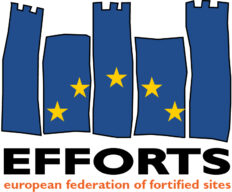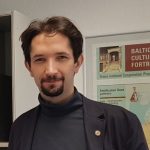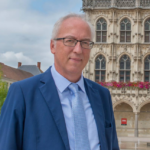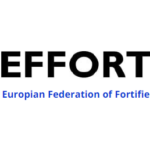Please find hereby :
- We are EFFORTS Europe – video presentation
- The EFFORT leaflet
- EFFORTS Presentation (download Powerpoint presentation)
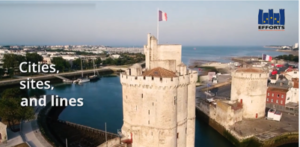
The EFFORTS priorities are:
• Dissemination of knowledge, internal and external
• Creating a European network of cities, fortification organizations and stakeholders
• Organizing access to sustainable funding and creating joint action opportunities for members
• Policy influencing
The EFFORTS vision and mission are:
Vision
Europe is faced with complex environmental, social, economic, mobility, spatial and inclusive challenges on which the EU has formulated policy goals. Military heritage is an integral part of Europe’s cultural heritage and identity. Wars and fortifications have had a profound impact on Europe’s history. Preservation and re-use of this shared heritage are important not only because of its special architecture and engineering aspects. Fortified sites present opportunities for finding answers for local or regional development needs, and for strengthening intercultural European or international dialogue between countries, regions, cities or people, and for establishing a European memory based on EU’s historical values. The Efforts motto is: from stronghold to welcoming arms.
Mission
EFFORTS is a European association building a network of city and region members and fortification site owners, using their fortified heritage assets to share heritage reuse knowledge. For this, EFFORTS and its members work together towards network or European projects solving regional or local environmental, social, economic, mobility, spatial and inclusivity policy needs and to contribute to the EU’s policy goals i.e. climate change adaptation and regional or local development, or urban regeneration priorities, like the New European Bauhaus. In order to achieve this, EFFORTS cities and regions promote exchange of information, sharing expertise, and long term cooperation within the objective of establishing European fortified heritage reuse projects on all policy levels with other EFFORTS members, or by reinforcing and enlarging the network.
There are many reasons why conservation and re-use of fortified sites is important:
-
-
- Their historical importance in shaping European history;
- Their architectural assets and engineering courage;
- The opportunities they present to strengthen intercultural and international dialogue;
- The recognition of major challenges for local restructuring due to the socio-economic impact that the departure of the military had on a site or city.
- The conceptual attitudes towards cultural heritage at European level is undergoing a fundamental transformation: from an approach focused on conservation to a focus on value and green interpretation of heritage. Recently there has been a growing recognition of the all-inclusive nature of the historic environment, where tangible and intangible assets are no longer perceived as separate from one another.
- During the 1990s the principle of sustainability was included more and more prominently in policy documents on cultural heritage, and more often combined with the objective of development.
- In 2005 the Faro convention was adopted. This convention positions people and human values in the centre of a renewed understanding of cultural heritage.
- In 2014 the Conclusions on Cultural Heritage as a Strategic Resource for a Sustainable Europe were adopted by the EU Council of Ministers, as well as by the paper “Towards an Integrated Approach to Cultural Heritage for Europe”.
- In 2015 the EU report entitled “Getting Cultural Heritage to Work for Europe” set out recommendations for an innovative policy framework and agenda for cultural heritage-related research and innovation up to 2020.
- The European Committee is aware of the importance of cultural heritage and 2018 is declared the European year of cultural heritage. It will present an opportunity to promote knowledge and understanding about cultural heritage, including fortified heritage. Through several EU programmes it is possible to acquire funding for sustainable use of cultural/fortified heritage.
-
This heritage should be better recognizable as a European asset. By joining forces and intensifying cooperation, sites, cities and regions can make a difference.
EFFORTS defends the interests of local and regional authorities and represents this important part of Europe’s history towards the EU institutions and beyond.
Working with representatives from all European countries, EFFORTS:
-
-
- establishes a permanent European network of fortified heritage sites
- sets up practical partnerships between scientific experts, policy makers, enterprises and practitioners in order to allocate means for innovative development of sites
- provides an international exchange of information and research and expertise on innovative (re)use of fortified heritage
- recognizes the tangible and intangible values and environmental, social and economic significance of fortified heritage
- supports members in the development of fortification heritage
- understands and promotes the regeneration and redevelopment of fortified sites and their surrounding urban and rural landscape
- promotes accessibility for citizens and meaningful sustainable and green reuse of fortified heritage
- highlights and raises the profile of fortified heritage, such as walled towns, fortresses and defensive lines
-
Board members October 2024 (full and associate):
For all information, contact EFFORTS Secretary General, Rafaël Deroo
